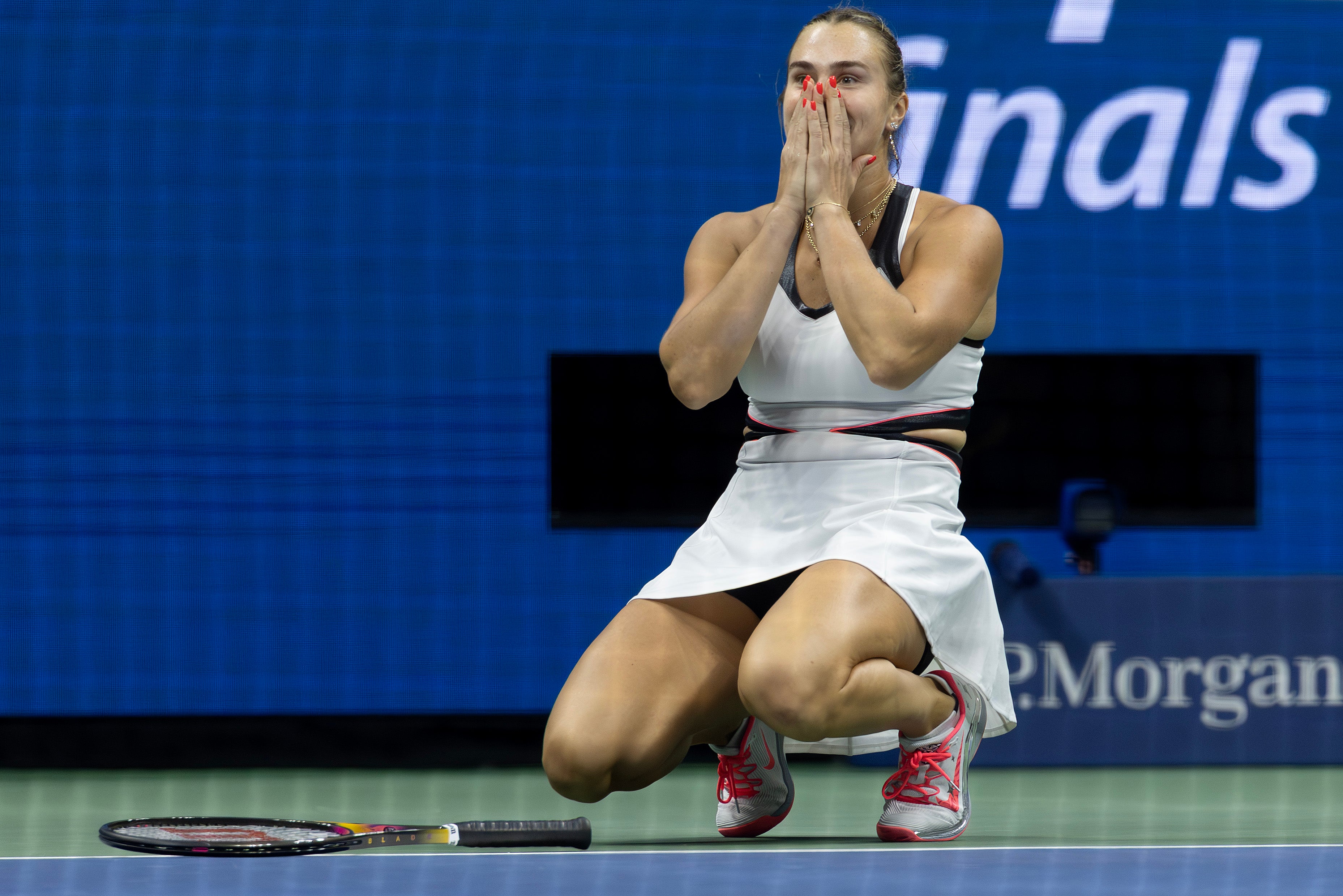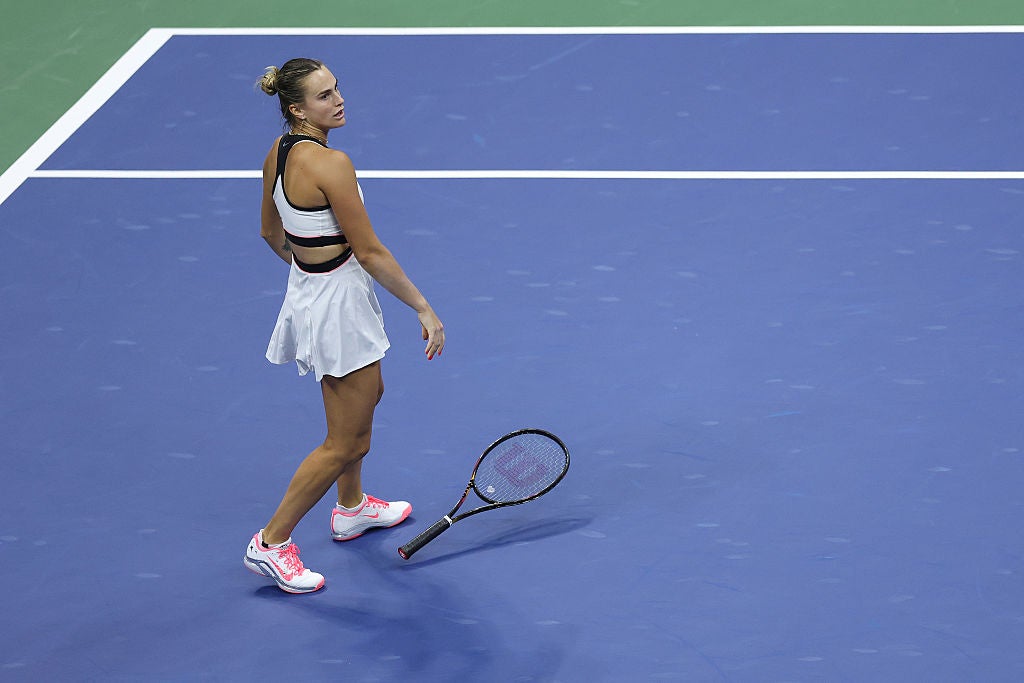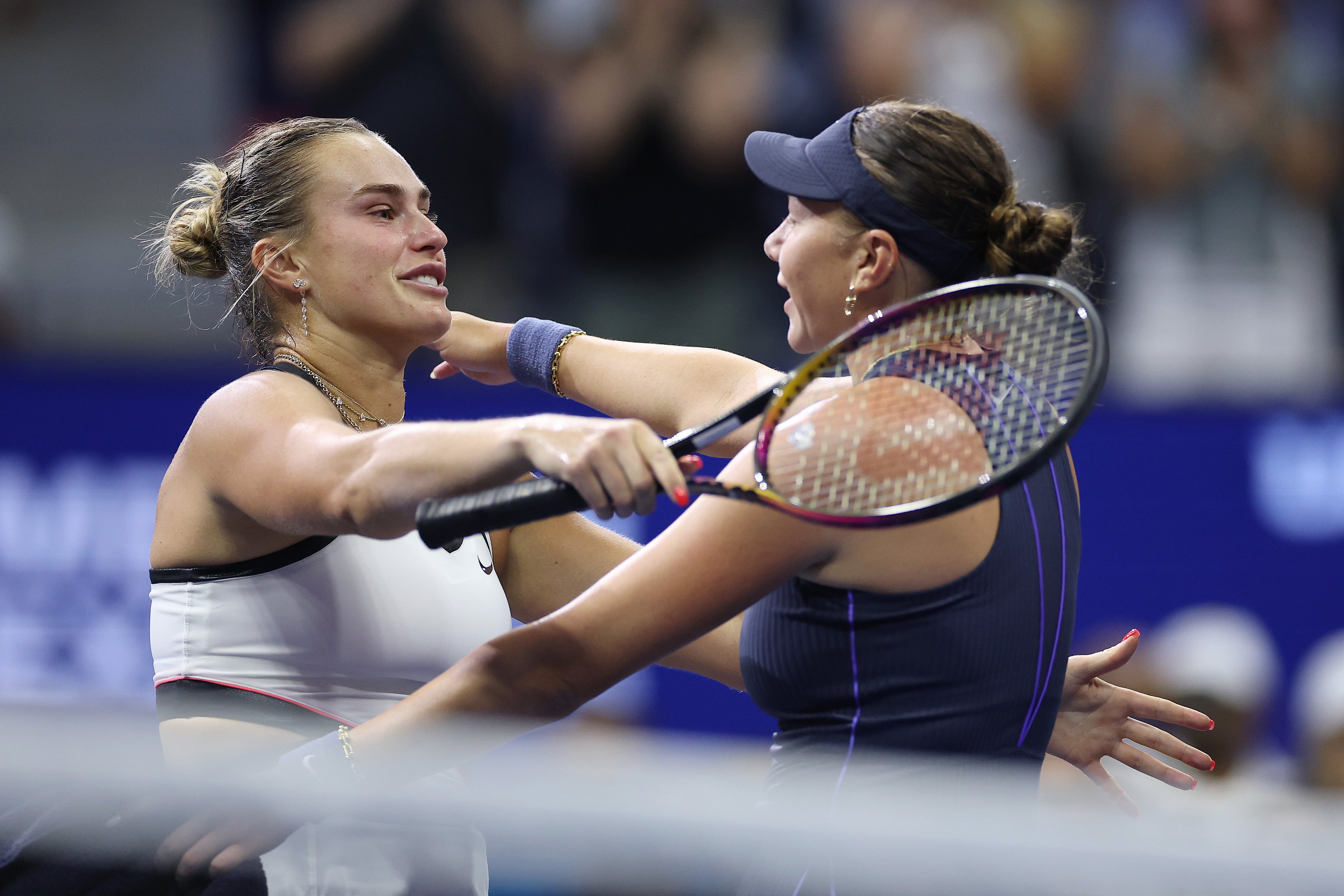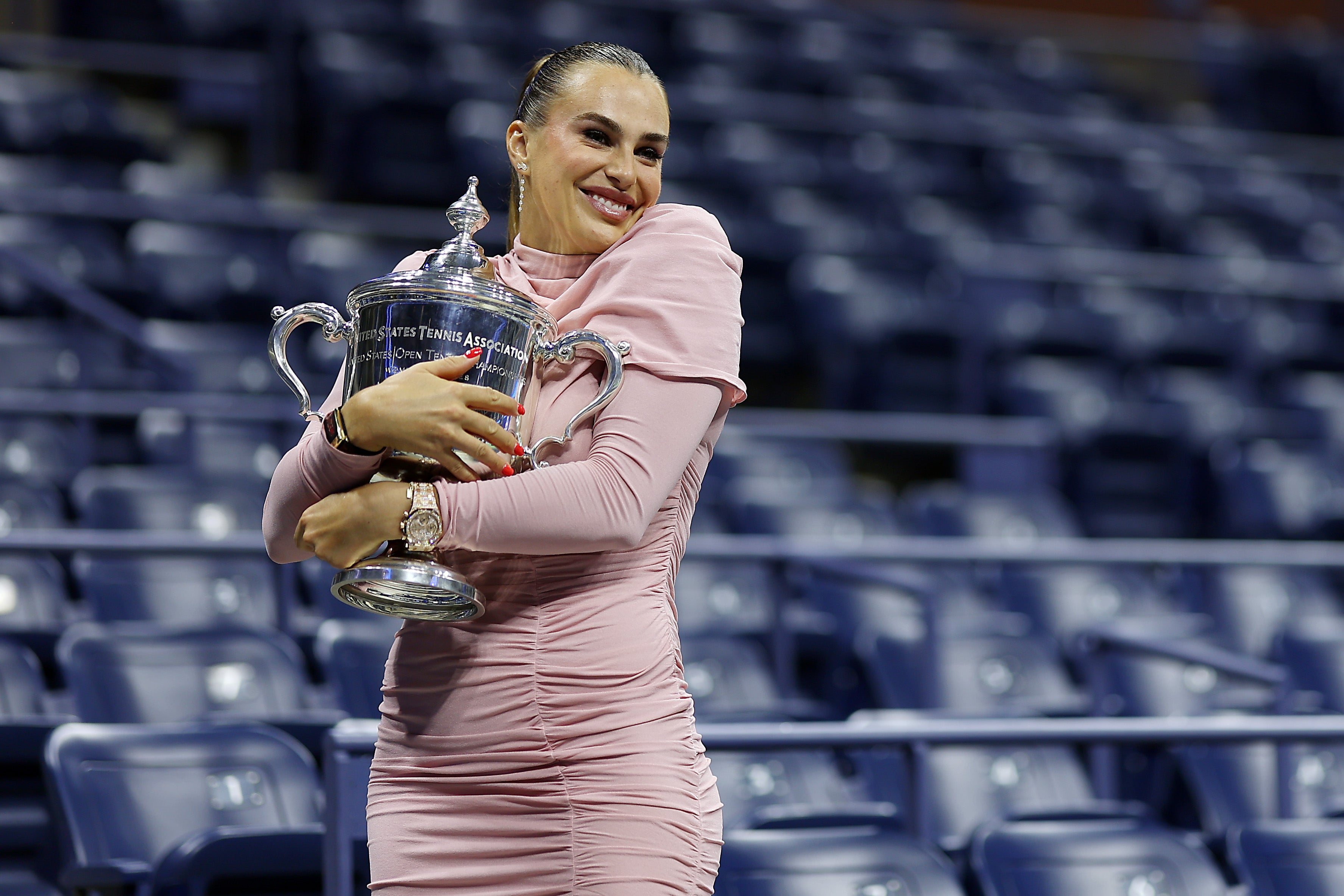
In a moment, as Aryna Sabalenka dropped to the baseline and collapsed into tears, all the painful defeats in grand slam finals were suddenly worth it. From the losses to Madison Keys at the Australian Open and Coco Gauff at the French Open this season, as well as her semi-final defeat to Amanda Anisimova at Wimbledon, Sabalenka emerged with valuable lessons, and then used them to her advantage in defending her US Open title.
She vanquished her demons and earned redemption to defeat Anisimova 6-4 7-6 (7-4), becoming the first player to retain her US Open title since Serena Williams in 2014. A fourth grand slam title of her career illustrates how her powerful game has come together with her improved touch, movement and, above all, mentality. A first grand slam title of her season is the reward for growing through adversity, and for tackling what had been holding her back: herself.
The World No 1 bounced into her post-match press conference holding up a giant bottle of Moet champagne, her eyes covered by ski goggles. The cork was popped, the champagne sprayed and swigged in triumphant celebration.

But in January, Sabalenka had been left furious by her unravelling in the Australian Open final to Keys, smashing her rackets and storming off the court as she failed to handle the biggest moments of the match. Sabalenka tried to forget about her meltdown in Melbourne, but in June she was overturned in similar fashion by Gauff. Afterwards, Sabalenka did not accept responsibility for what was another mental collapse, eventually apologising to Gauff for the comments she made in an ungracious press conference.
A pattern was developing, until Sabalenka studied her defeats more closely. “I figured that, okay, maybe it's time for me to sit back and to look at those finals and to maybe learn something,” she said. Sabalenka revealed that she had expected to beat Keys and Gauff easily and became frustrated when they both put up a fight. She concluded that she allowed her emotions to take control, leading to her spiralling error count.
“Going into this final I decided for myself that I'm going to control my emotions,” Sabalenka said. “I'm not going to let them take control over me. Doesn't matter what happens in the match.”
There were two moments, though, when Sabalenka’s mindset was put to the test. There was a sense that the US Open final was about to turn when the Anisimova broke Sabalenka as she served for the match. As Anisimova scrambled and Sabalenka put the overhead into the net, dropping her racket in disgust, the Arthur Ashe Stadium shook.

But, in a significant moment of growth, Sabalenka remained composed. “I took a deep breath in, and I was, like, okay, it happens,” she said. “It's in the past. Let's focus on the next one.”
Anisimova still broke Sabalenka, levelling the match at 5-5 in the second, but the Belarusian didn’t allow the moment to become the start of a comeback. With the American fans going crazy and raising the noise, perhaps a different Sabalenka would have crumbled with it.
Instead, she took to the second-set decider and appeared impenetrable, extending her run of tiebreaks won to 19 in a row since February. Anisimova did not reach the level of attacking play that the 24-year-old only found in spells during her second grand slam final defeat in a row, but Sabalenka found a way to neutralise her power. When Anisimova stepped up, Sabalenka did not back down.

“Going into this match, I knew that it's going to be very fast game, very aggressive,” Sabalenka said. “I was just trying to stay as low as possible and I was just trying to put that speed, that pressure back on her and see how she can handle it.” Anisimova’s 29 unforced errors to Sabalenka’s 15 was a decisive factor, too. Sabalenka had studied the Wimbledon semi-final defeat to Anisimova, too, and came away with another lesson on what she needed to change.
Anisimova sobbed into a towel before the trophy ceremony but can take far more from her run to a first US Open final than how her Wimbledon nightmare unfolded two months ago. While the nightmare experience of losing the final to Iga Swiatek 6-0 6-0 ultimately allowed Anisimova to become stronger mentally, as she proved in her own revenge win in the quarter-finals, it was only at the US Open where Anisimova truly believed that she belonged in a grand slam final. She will enter the top-four in the world for the first time on Monday.

“I think I didn’t fight hard enough for my dreams today,” she said on court. Anisimova later explained: “I just felt like throughout the match I wasn't playing my best tennis. I feel like if I fought harder, then maybe I would have given myself more of a chance. But I feel like I was in the back seat today.”
Perhaps that was because of Sabalenka and the fight she showed. A season spent at World No 1 and three finals without a grand slam title would have been, at best, a missed opportunity and, at worst, a failure. Her emotional reaction at the end confirmed that victory at the US Open felt different to any of her other grand slam titles.
“I think because of the finals earlier this season,” Sabalenka said. “This one felt like I had to overcome a lot of things to get this one.
“I knew that [with] the hard work we put in, like, I deserved to have a grand slam title this season. So when I fell, it was like truly emotions, because it means a lot to defend this title and to bring such great tennis on court.
“And to bring the fight and be able to handle my emotions the way I did in this final, it means a lot. I'm super proud right now of myself.”







